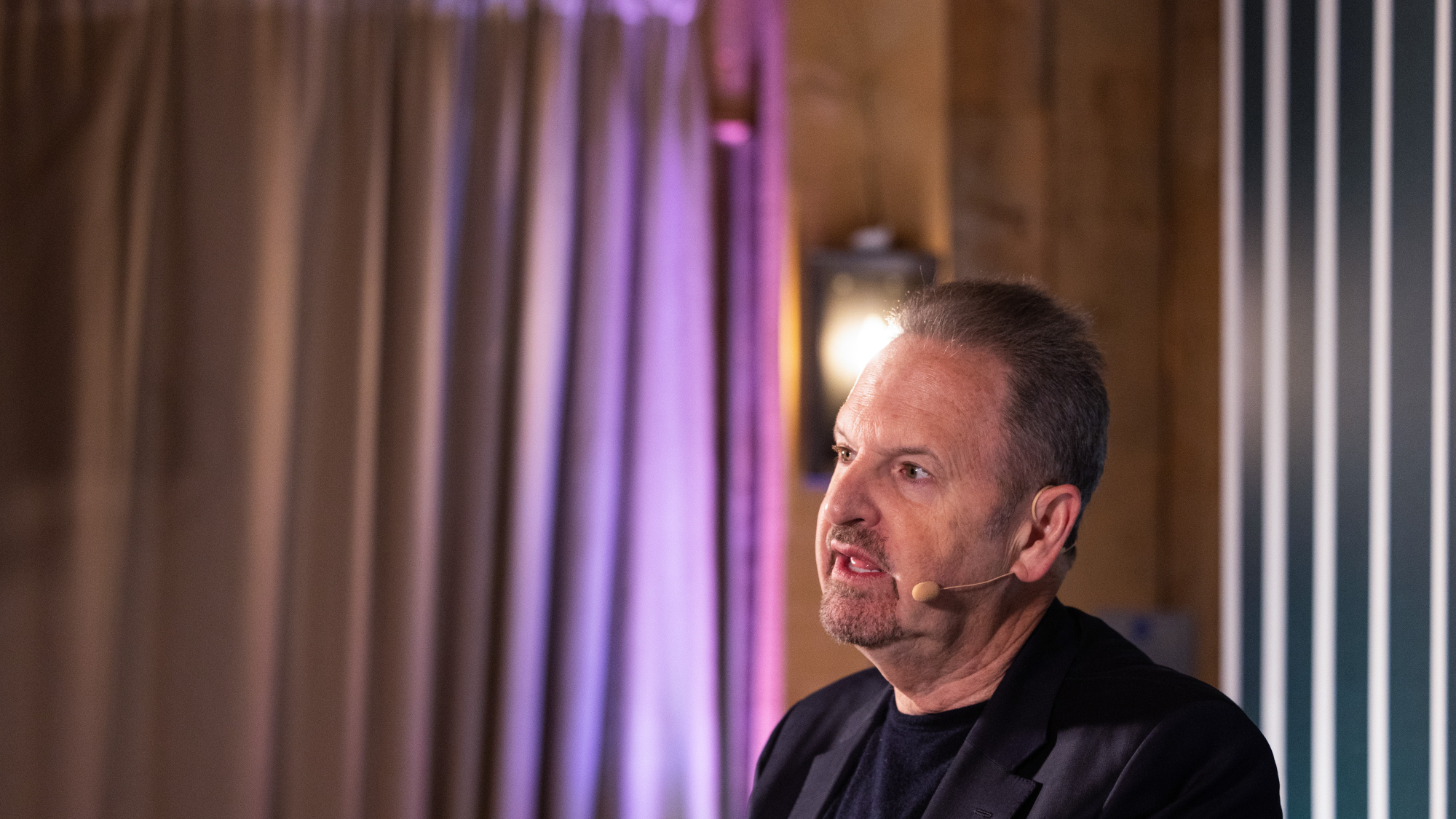ARM CEO joins Nvidia in stance against US export controls — Rene Haas says narrower access 'not good' for industry or consumer
“If you narrow access to technology and you force other ecosystems to grow up, it’s not good."

Arm CEO Rene Haas has joined Nvidia CEO Jensen Huang in criticizing U.S. export controls of AI semiconductors to China, a move he says could slow the overall advance of the technology, impacting both consumers and industry players, as reported by Bloomberg.
Speaking at the Founders Forum Global conference in Oxford, Haas said, "If you narrow access to technology and you force other ecosystems to grow up, it’s not good... It makes the pie smaller, if you will. And frankly, it’s not very good for consumers." He also touched on Arm's footprint in China, noting the company's presence is "quite significant."
Washington enacted curbs on the exports of data center processors to China in April, a measure that has reportedly cost Nvidia $8 billion and has largely shut it out of the market.
In May, Huang branded Trump's export controls "a failure," and warned they were having the opposite effect on the market as intended. Rather than stifling China's growth in AI to give the U.S. an advantage, Huang postulated that the ban was pushing Chinese rivals, including Huawei, to accelerate growth and innovation in AI, ultimately leading to more competitive offerings. He lamented that due to the ban, which directly affects its H200 chip, Nvidia had had to write off the equivalent of a semiconductor company from its bottom line.
Continuing his own lobbying efforts, Haas revealed he has spent "far more time in Washington in the last year and a half than I have in my entire career," but admitted that the current administrationt has "a lot of smart people who are who are connected to our industry," adding that he thought Arm's voice was being heard.
He also gave a nod to Huang, describing him as a fierce competitor and a fast innovator. This week at VivaTech in Paris, Huang warned that if AI chip restrictions continue, Huawei will take advantage, stating "our technology is a generation ahead of theirs," but warned that "If the United States doesn’t want to partake, participate in China, Huawei has got China covered, and Huawei has got everybody else covered."
Follow Tom's Hardware on Google News to get our up-to-date news, analysis, and reviews in your feeds. Make sure to click the Follow button.
Get Tom's Hardware's best news and in-depth reviews, straight to your inbox.

Stephen is Tom's Hardware's News Editor with almost a decade of industry experience covering technology, having worked at TechRadar, iMore, and even Apple over the years. He has covered the world of consumer tech from nearly every angle, including supply chain rumors, patents, and litigation, and more. When he's not at work, he loves reading about history and playing video games.
-
Notton ReplyIf you narrow access to technology and you force other ecosystems to grow up, it’s not good... It makes the pie smaller, if you will. And frankly, it’s not very good for consumers.
I like how he has the audacity to claim he wants a bigger pie slice for himself, while simultaneously claiming the end consumer is the one that will suffer.
We the consumers don't even have to look back that far to see how this isn't true at all with Windows bloat and Intel stagnation. -
hotaru251 ReplyIf you narrow access to technology and you force other ecosystems to grow up, it’s not good... It makes the pie smaller, if you will. And frankly, it’s not very good for consumers.
arm is w/e.
nvidia on other hand...they NEED to get competition because we've seen what an effective monopoly on soemthing does....and it is NOT very good for the consumer :| -
GenericUser2001 I would like to point out that the ARM Ceo, Rene Haas, was an Nvidia VP prior to him joining ARM.Reply -
Trake_17 Reply
Because, ya know, competition is bad for consumersNotton said:I like how he has the audacity to claim he wants a bigger pie slice for himself, while simultaneously claiming the end consumer is the one that will suffer.
We the consumers don't even have to look back that far to see how this isn't true at all with Windows bloat and Intel stagnation. -
Tanooki2025 Well, thanks to the Dump administration’s brilliant move to cut off U.S. tech to China, we’ve handed them a one‑way ticket to leveling up faster than ever. And hey, when you starve a powerhouse like China, they don’t just fold, they adapt, innovate, and over time become a legit threat to Nvidia and the West. Huang himself admitted that banning AI chips has backfired, powering Chinese companies like Huawei, Alibaba and Tencent to ramp up their game and grab market share, Nvidia’s slice in China shrank from 95 % to 50 % because of it .Reply
Look, if you keep tabs by letting them use your tech, you’re still in the game , giving them no reason to want to self innovate or innovate at a snails pace. But shutting them out? That just gives them the motivation, funding and political excuse to build their own. And you can bet with enough time and resources they’ll be matching or even beating Western offerings across the board. China isn't North Korea, you cut them off, and they’ll suffer briefly. But then they eventually pivot, scale, and self‑sustain. At that point you're not dominating, you’re taking a back seat to watching your empire slip.